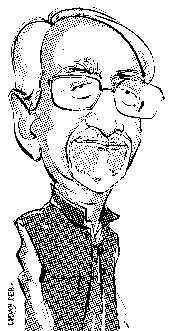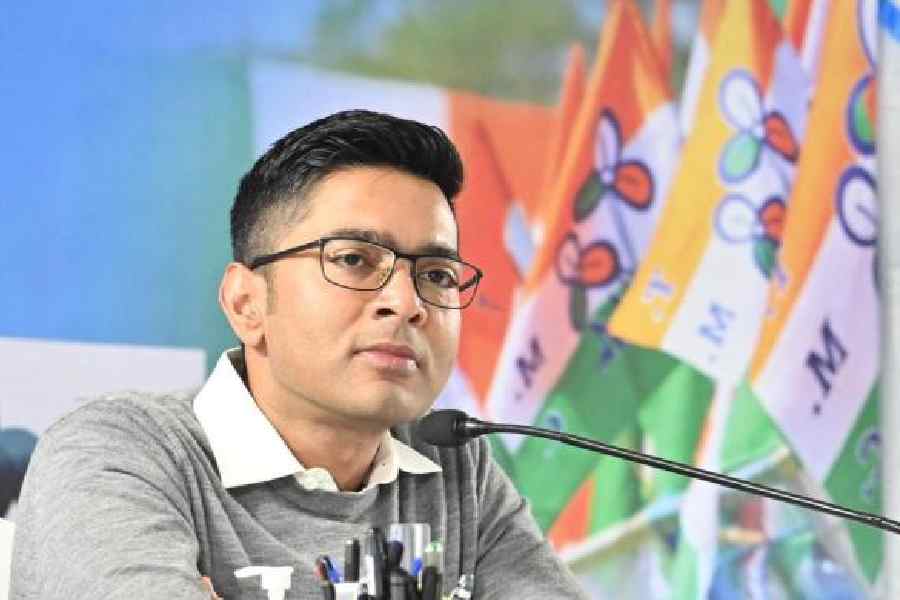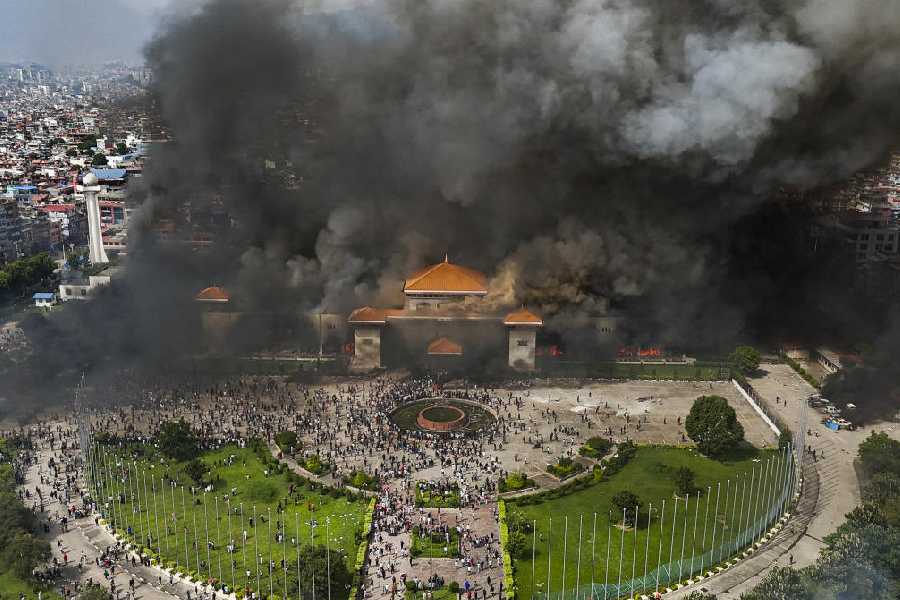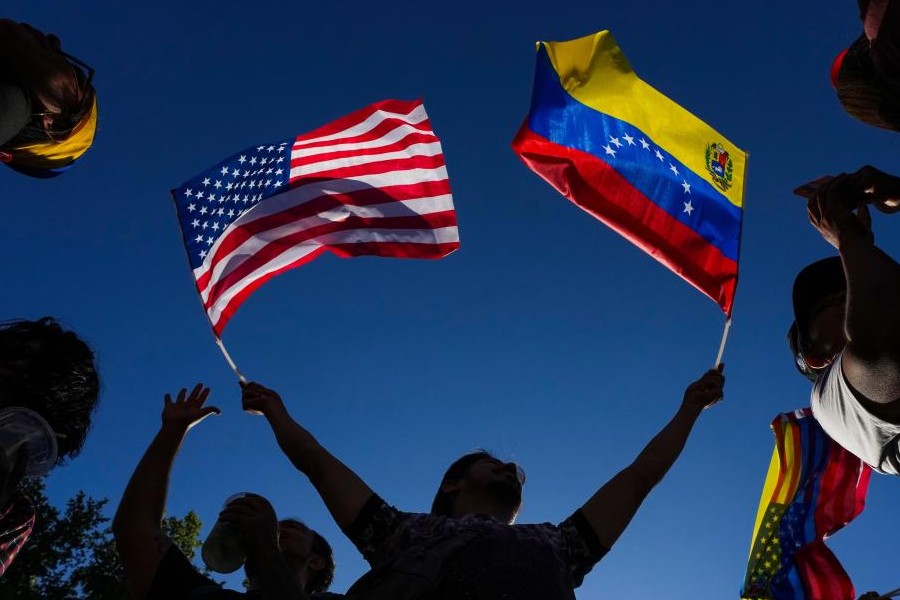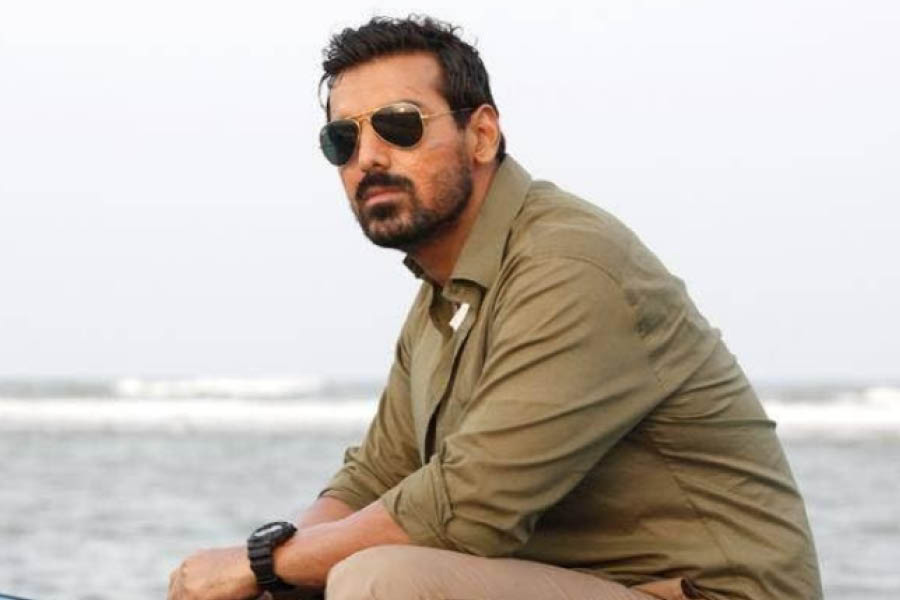 |
A couple of crew-cut policemen in regulation safari suits stand outside the chief minister’s suite at Himachal Sadan in New Delhi’s upper-crust Chanakyapuri area. Another gent emerges in a minute, all wired up around his ears and skull. “Mr Hamid Ansari please,” I whisper — I’m not used to this cloak-and-dagger stuff.
I am ushered into a room with sofas and air-conditioning. This is where some of the Big Decisions to do with life and liberty, at least in Himachal Pradesh, must be taken. And this is where Hamid Ansari has been asked to sit and lobby parliamentarians on the phone for the August 10 vice-presidential poll.
That’s when 70-year-old Ansari walks in with a breezy “Hello!”
He’s a slim man with a head of white hair and he favours the Fabindia kurta-churidar of the casual elite. The UPA’s candidate for Vice-President — known for his easy, soft-spoken charm — seems somewhat irritable, though, as if the idea of being in the stratosphere hasn’t quite settled in.
Moreover, he’s fair game now. The fact that his being Muslim — apart from his impeccable record as an ambassador of India, West Asia scholar extraordinaire, vice-chancellor of the Aligarh Muslim University (AMU) and, lastly, chairman of the Minorities Commission — tipped the Left parties’ balance in favour of his candidature is clearly jarring to him.
“Najibullah (the former Afghan president who was hanged by the Taliban when they entered Kabul) once described to me Benazir Bhutto’s condition — that she lived like a parrot in a gilded cage. That’s how I feel now, as if I’m in a gilded cage,” says Ansari with a hollow laugh. Then he adds with a chuckle, “Except that I’m no parrot!”
For a man who loves his Tacitus, Herodotus and Thucydides, is equally at home in Hindi, Urdu, Arabic and English, and even some Persian, Ansari is unlikely to ever deliver the glib speech or unthinkingly mimic his masters. Unlike the ever-growing flood of former diplomats in the city desperately seeking political crumbs, Ansari swam against the tide and spoke out against both the Bharatiya Janata Party (BJP) and the Congress-led governments’ policies on Iraq and Iran.
Ansari tells the story of how six of them, including friend and erstwhile national security adviser J.N. Dixit (who died two years ago), wrote to the parliamentary committee of external affairs arguing why India should not send troops to Iraq. This was four years ago and senior BJP leaders, seeking to win brownie points with the Americans, had already promised that Delhi would send a battalion. In the end, Atal Behari Vajpayee himself ruled against it, saving India the ignominy of treating an old friend like an enemy.
Perhaps the fact that as a young foreign service officer he romanced his wife on the banks of the Tigris and the Euphrates in Baghdad in 1962-63, got married there in 1964 and subsequently honeymooned in Kurdistan has something to do with his love for and understanding of the Arab-Persian world.
Still, it was one thing for a secular-liberal person to dissent with the BJP on its Iraq policy, and quite another to vehemently disagree with the secular-liberal UPA government’s decision on Iran. “I reflected a very widely held view within India on how the Americans were unfairly treating Saddam Hussein or destroying an ancient culture. As for Iran, how could Delhi say the Security Council was the place to settle the matter? That’s the place where it gets much more serious,” Ansari says.
Then, he points out, “the fact that I am now a candidate of the UPA points to the depth of the system to take dissent.”
So how does he feel about the UPA’s ritual tokenism, a woman President and a Muslim Vice-President? “Throughout my career as a civil servant I was not told even once that there were separate rules for Muslims,” he says, shrugging off the accusation.
He tells me about a letter M.A. Jinnah wrote to his father in 1947, when he held India’s top job in the insurance business, “which he must have written to every Muslim in the senior echelons of government at the time,” inviting him to move to Pakistan.
His father’s reply was short. “At my age, I don’t change my country,” he said.
The father’s low-key style has clearly been inherited by the son. “All these decades I have kept myself hidden away…,” he says, as his voice trails off.
In fact, Ansari’s impeccable career credentials (ambassador to Saudi Arabia, Iran, the UAE, India’s permanent representative at the UN) match an impeccable lineage. His grand-uncle, Dr M.A. Ansari, was the president of the Indian National Congress in 1927, and his father worked very closely with him as his political secretary in the non-cooperation movement.
“My father was part of a small group of people remembered only as footnotes to Motilal Nehru,” he adds deprecatingly. Dr Ansari formed the Muslim Nationalist Party, perhaps or perhaps not as a counter to the Muslim League. It never took off. His father moved to the private insurance industry.
Hamid Ansari was born in Calcutta in 1937 and since his father was in the moveable insurance business, did his schooling in Shimla, and later studied at St Xavier’s College in Calcutta. In Shimla, the family lived in a big, Raj bungalow opposite the girls’ school, Auckland House, and that’s where both freedom and Partition came. He remembers the family moving to a hotel for some days to tide things over.
The family stories could make up a novel. Such as elder brother Khalid, who having finished from La Martiniere, Calcutta, and St Stephen’s college, Delhi, in 1953, went to a boxwallah company for an interview.
“They told him: We have a job for you. Pause. But in Pakistan. He turned them down, saying that he lived here in India,” Ansari says.
Then there are others in the extended family, like Mukhtar Ansari, the famous BSP MLA-gangster of eastern UP, with scores of murders to his name, more in jail than outside. “Mukhtar is part of the family. I can’t disown him. You don’t disown family,” says Ansari.
As for the spirit of Nehru’s India that is gradually fading after 60 years, Ansari points out that it was understandable, after Partition, for Hindus and Muslims to be at each other’s throats. But how did one explain the riots and the pogroms over the years, from Meerut and Hashimpura, to the violence after Indira Gandhi’s assassination in 1984, and even Gujarat in 2002?
As the chairman of the Minorities Commission, he read every government inquiry report on every riot, massacre and pogrom since 1947. Every report said the same thing. “First, trouble is created deliberately, then the state refuses to act. Everywhere you see the state has absented itself from exercising authority.”
So what of the public accusation that Hamid Ansari, a non-political person, will hardly be able to handle a raucous Rajya Sabha?
In his defence, Ansari tells another story. After he was shortlisted for the post of vice-chancellor of AMU, then HRD minister Murli Manohar Joshi rejected his candidature, saying he would retire before the five-year-tenure ended. But President K.R. Narayanan was not convinced. He consulted two former chief justices who debunked Joshi’s view and Ansari got the job.
Once at AMU, says Ansari, he realised the students were more sinned against than sinning. They would gherao him for hours on end, but their tehzeeb never allowed them to assault him.
Once, a dharna outside the V.C.’s house did not end for 48 hours. “On the third morning I went out and joined them,” he says. The dharna fizzled out pretty quickly.
Moral of the story: The next Rajya Sabha had better watch out for Mohammed Hamid Ansari’s lightness of touch.

